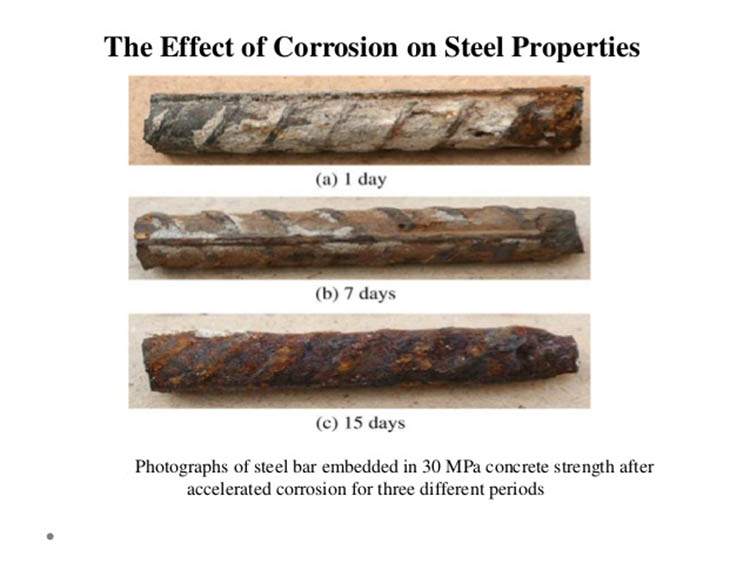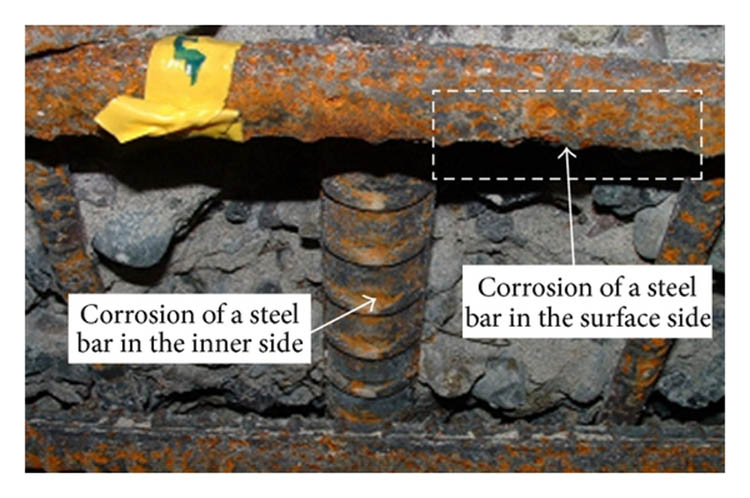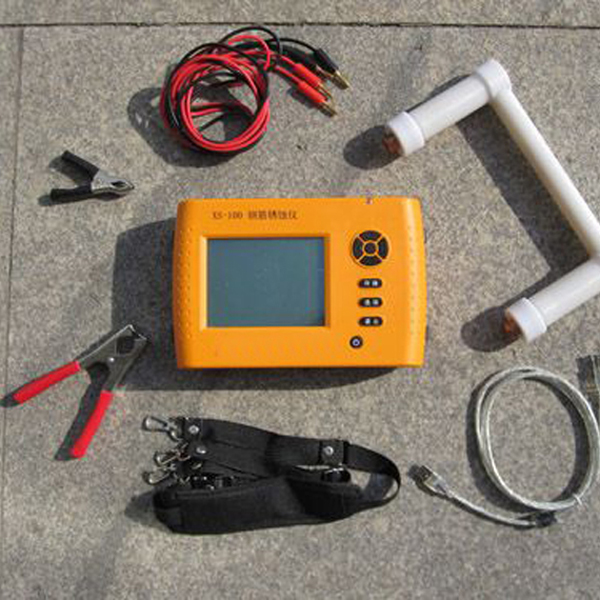Why should the steel bar be tested for corrosion? Due to the corrosion of the reinforcing bar, the section of the reinforcing bar is weakened, and the bearing capacity of the section is reduced.

Reinforcement corrosion causes a loose rust layer on the interface between steel and concrete. The volume of the rust product expands, destroying the chemical adhesion between the surface of the steel and the cement colloid, affecting the joint work of the concrete and the steel, and causing the protective layer to crack or even peel. Longitudinal cracks appear along the length of the steel bar, reducing the restraint of the surrounding concrete on the steel bar, weakening or even destroying the bonding and anchoring effect of the steel bar and the concrete, reducing the bearing capacity and applicability of the reinforced concrete member or structure, and directly affecting the safety and Durability.

Therefore, understanding the influencing factors of steel bar corrosion, taking measures to prevent steel bar corrosion, and detecting and diagnosing steel bar corrosion as early as possible are very important to ensure the durability and safe use of steel concrete structures.
In addition, we need to pay attention to take corrective steps when using the steel bar corrosion meter to detect the steel bar corrosion degree, in order to obtain accurate measurement data to achieve our testing purpose:
1. Select the measurement area and wet the measured surface. The detection of the corrosion status of the reinforcing steel bar should be the main stress part of the main load-bearing members, or there are signs that the steel bar may be corroded according to the general inspection results;
2. Grind the concrete surface of the test area with a wire screen and sandpaper to remove paint, scum, dirt, dust, etc .;
3. Place test grids in the test area. The grid nodes are the test points. The grid spacing can be selected from 20 × 20cm, 30 × 30cm, 20 × 10cm, etc. Depending on the size of the component, the location of the measurement point should be greater than 5cm from the edge of the component. Generally Should not be less than 20 measurement points;

4. Check whether copper sulfate is saturated. A saturated copper sulfate solution is made by dissolving copper sulfate crystals in distilled water. When there is an excess of undissolved copper sulfate crystals at the bottom of the solution, the solution can be considered saturated. The electrode copper rod should be clean without obvious defects, otherwise the copper rod should be cleaned with a dilute hydrochloric acid solution. The copper sulfate solution should be replaced every month, if not used for a long time, it should be replaced with a new solution to keep the solution clean. The solution should be filled with electrodes to ensure connection;
5. Connect the steel bar corrosion meter and connect the negative input of the meter to the steel bar. If the measurement is performed in a measurement area far from the connection point of the steel bar, the continuity of the internal steel bar must be checked with a multimeter.
6. Wet the porous plug at the front of the electrode before testing, and wet the concrete surface again with a sprayer;
7. Trial test, check the connection of the test system. The reading of the test point does not exceed 2mv, which can be regarded as stable. At the same measurement point and the same reference electrode, the difference between repeated readings does not exceed 10 mv, and the difference between repeated readings of different electrodes does not exceed 20 mv. If the stability requirements are not met, all links of the test system should be checked;
8. Start testing and keep records;
The question of why the steel bar corrosion degree is tested may be simple, but how to use the steel bar corrosion meter to obtain accurate data, you need to refer to the above eight steps in turn. Please feel free to contact us with more questions about the reinforcement corrosion instrument! !!